 Wouldn’t it be nice to wake up like this every morning knowing that you found the perfect term insurance policy- even with sleep apnea?
Wouldn’t it be nice to wake up like this every morning knowing that you found the perfect term insurance policy- even with sleep apnea?
Update 6/14/2021
CPAP therapy may have a protective effect on adverse cardiovascular outcomes in patients with coronary artery disease and nonsleepy obstructive sleep apnea who have greater heart rate responses to sleep apnea events.
Greater heart rate response to respiratory events “could be used to select patients most likely to exhibit long-term cardiovascular benefit from CPAP therapy,” Ali Azarbarzin, PhD, with the division of sleep and circadian disorders at Brigham and Women’s Hospital and assistant professor of medicine at Harvard Medical School, said during a presentation at the virtual American Thoracic Society International Conference.
If you are searching for sleep apnea life insurance, you’ll love this article…
There are a TON of other sites that merely “discuss” sleep apnea and a basic overview of the life insurance application process.
One of my main Competitors, Quotacy, has a popular blog post, but no others delve as deeply into the subject of sleep apnea life insurance as we do in this guide and on our entire site.
In fact, not even PolicyGenius or LifeInsuranceByJeff come close to going as deeply into the subject of sleep disorders and life insurance.
And why would they?
It takes a MASSIVE amount of time and research to come up with excellent resources on high-risk life insurance.
So, if you want detailed information on your condition, and the best possible guidance during the sleep apnea life insurance process, then keep reading this guide.
You may want to bookmark this page and come back a few times. This article is THAT detailed.
Let’s face it, sleep apnea is a pain in the neck! So many more people have been diagnosed with it in the last 25 years that it’s now a huge industry.
That also means that if you’ve been diagnosed with sleep apnea and you need or think you need life insurance, you’ll need someone to guide you through the life insurance process.
And that’s exactly what’ll I’ll do in this article. You see, you’re not alone in this. I have moderate OSA and I “get it”.
So, keep reading and you’ll get the most information on sleep apnea life insurance on the internet.
You’ll also get ACTIONABLE steps you can take to get the lowest price on your life insurance.
Simply keep reading feel free to chat with us in the chat box if you have any questions!
Take care,
Chris
My Name Is Chris Acker, CLU, ChFC. I’m a life insurance broker and I have sleep apnea… I Was Diagnosed With OSA In 2004. My AHI Without Treatment Was 35. I Started Using CPAP In 2004 And My Life Changed! My New BIPAP Device Measures My AHI At About 2.5 Each Night. my life insurance company now loves me since i’m CPAP compliant!
I know that getting life insurance with sleep apnea is vital to your family. I also know that it’s difficult and confusing when you know your have sleep apnea and you want to get term insurance. There are hundreds of online term insurance quote sites out there, but none that specialize in sleep apnea life insurance. I’ve put this resource together for YOU, the sleep apnea sufferer. Please CALL US to ask any questions at all!
Get Your Fast Free Term Insurance Quotes Here! See Just How Affordable It Is To Protect The Ones You Love
More Than 54 Million Americans Suffer From Obstructive Sleep Apnea
According to the National Sleep Foundation sleep apnea is very common, as common as type 2 diabetes. It affects more than 54 million Americans. It’s a major contributor to many road and driving accidents across the country. Drowsy driving causes at least 100,000 wrecks, about 1,500 deaths and billions of dollars in property damage annually.
The problem is, many people don’t know they suffer from sleep apnea. Their condition goes either undiagnosed or misdiagnosed.
Those Who Suffer From Sleep Apnea Often Have A Difficult Time Getting Good, Quality Life Insurance That’s Affordable.
That’s why we’ve put this guide together for you and compiled a ton of information all in one place so we can help you get the information about your sleep apnea condition and how to navigate the life insurance with sleep apnea maze.
In This New 2018 Guide You’ll Learn:
-
What Sleep Apnea Is And Why It’s Difficult, But Not Impossible, To Get Life Insurance
-
What Sleep Apnea Does To The Body- Way More Than Just Snoring!
-
How Sleep Apnea Is Treated And Why Life Insurance Companies Love To See Apnea Treatment Compliance- Especially CPAP Users
-
Are There Any Permanent Cures For Sleep Apnea-What’s The Current “State-Of-The Art”
-
What Are Some Home Treatments For Sleep Apnea?
-
What Type Of Doctor Should I See For Sleep Apnea?
-
What Totally Easy Things Can You Do To Help Yourself Get The Best Rates On Your Life Insurance Application
-
What AHI And RDI Readings Do The Insurance Companies Want To See
-
Do I Tell My Life Insurance Companies About My Sleep Apnea?
-
Don’t Have Your Life Insurance Application Declined For Non-Disclosure…
-
Who Has The Best, Most Complete Information In Order To Help You Find The Life Insurance Policy That’s Best For You?
Quick navigation
More Than 54 Million Americans Suffer From Obstructive Sleep Apnea
Those Who Suffer From Sleep Apnea Often Have A Difficult Time Getting Good, Quality Life Insurance That’s Affordable.
What Sleep Apnea Is And Why It’s Difficult, But Not Impossible, To Get Life Insurance
What Sleep Apnea Does To The Body- Way More Than Just Snoring!
How Sleep Apnea Is Treated And Why Life Insurance Companies Love To See Apnea Treatment Compliance- Especially CPAP Users
Are There Any Permanent Cures For Sleep Apnea-What’s The Current “State-Of-The Art”
What Are Some Home Treatments For Sleep Apnea?
What Type Of Doctor Should I See For Sleep Apnea?
What Totally Easy Things Can You Do To Help Yourself Get The Best Rates On Your Life Insurance Application
What AHI And RDI Readings Do The InsuranceCompanies Want To See
Do I Tell My Life Insurance Companies About My Sleep Apnea?
Don’t Have Your Life Insurance Application Declined For Non-Disclosure…
Who Has The Best, Most Complete Information In Order To Help You Find The Life Insurance Policy That’s Best For You?
What Is Sleep Apnea
There are three types of sleep apnea:
What Is The Life Expectancy Of Someone With Central Sleep Apnea (CSA)?
What Is The Life Expectancy Of Someone With Obstructive Sleep Apnea (OSA)?
What Are The Consequences Of Untreated Sleep Apnea?
What Is Continuous Positive Airway Pressure (CPAP)
How Many Years Does A CPAP Machine Last?
How To Get A Sleep Apnea Life Insurance Policy Issued With The Best Possible Rates –What’s “Being Rated” For Life Insurance
Is Sleep Apnea Considered A Pre-Existing Condition For Sleep Apnea Life Insurance?
Could I Be Denied Insurance Because Of My Sleep Apnea?
Things All Sleep Apnea Sufferers Need To Consider When Choosing A Life Insurance Company
Which Life Insurance Carrier Would Be Most Competitive For You Today?
Which Life Insurance Company Would Be Less Aggressive Because They Have Reserve And Credit Concerns?
Which Life Insurance Company Would Be Under Tighter Control By Their Reinsurer?
Which Life Insurance Company Would Be Given More Leniency By Their Reinsurer?
Which Life Insurance Carrier Would Be A Bit Hungrier For Your Business?
Life Insurance Sleep Apnea Questionnaire
What Are The Best Life Insurance Companies For People With Sleep Apnea?
Make Sure To Use An Experienced Independent Life Insurance Broker Who Knows About Sleep Apnea And The Life Insurance Underwriting Process. You’ll Save Money And Time By Working With A Professional Who Knows The Life Insurance Market For Your Specific Health Condition!
What Research Is Being Done On Sleep Apnea Now?
Are There Any Permanent Cures For Sleep Apnea?
New Sleep Apnea Treatment Breakthroughs 2018
Neuromodulation Treatment For Sleep Apnea
Non-Surgical Treatment Recently Approved By FDA For Sleep Apnea
Surgical Procedures For Sleep Apnea
HOW DOES THE VA DIAGNOSE SLEEP APNEA?
Sleep Apnea Secondary To PTSDIs Huge!
Here Is The VA Rating For Sleep Apnea
(You’ll Need This Information To File A Claim For Military Sleep Apnea Benefits)
Bonus Section: What sleep apnea and About Car Insurance?
Is Life Insurance Directly Related To Car Insurance?
BUT… Driving With Untreated Sleep Apnea And Being Sleep Deprived Is Like Driving While Drunk!
Sleep Apnea And Life Insurance Comments
Let’s Face It, When It Comes To Any Medical Problem, It’s Confusing To Try To Get Life Insurance.
Just know, that there’s an awesome life insurance policy out there for you!
By Paying Attention To This Guide, Learning About The Condition, And Understanding What The Life Insurance Companies Are Looking For Will Put You Miles Ahead On The Road To Low-Cost High-Quality Sleep Apnea Life Insurance.
So Enjoy, Learn And Share This Resource With Those You Care About!

What Is Sleep Apnea
Sleep apnea is a sleep disorder characterized by pauses in breathing or periods of shallow breathing during sleep. Each pause can last for a few seconds to a few minutes, and they happen several times a night. In it’s most common form, this is followed by loud snoring.
There are three types of sleep apnea:
- central sleep apnea (CSA)
- obstructive sleep apnea (OSA)
- mixed sleep apnea (both central sleep apnea and obstructive sleep apnea)
What Is The Life Expectancy Of Someone With Central Sleep Apnea (CSA)?
Central sleep apnea (CSA) is characterized by symptoms of frequent starts and stops of breathing during sleep, which leads to regular nighttime awakening. CSA is much rarer and occurs when an abnormality in the brain fails to maintain proper breathing when you are asleep. The estimated average lifespan of someone who suffers from CSA is 20 years shorter than the norm. Some of the causes of CSA can be extremely serious. Here are a few:
- Problems that affect the brain-stem, including brain infection, stroke, or conditions of the cervical spine (neck)
- Severe obesity.
- Certain medicines, such as narcotic painkillers.
What Is The Life Expectancy Of Someone With Obstructive Sleep Apnea (OSA)?
People who suffer from moderate to severe OSA are 4x more likely to die when the sleep disorder is left untreated. If your OSA is untreated, you are likely sleep-deprived. Adequate uninterrupted sleep is essential for our bodies to heal itself. And the frequent fragmenting of your sleep caused by sleep apnea’s dysfunctional breathing patterns means you aren’t getting the restorative rest your body and brain need to function at optimal levels, potentially causing you to injure yourself.
What Are The Consequences Of Untreated Sleep Apnea?
Sleep apnea can have severe and life-shortening consequences if left untreated. Sleep apnea is associated with heart disease, high blood pressure, diabetes, and stroke. Sleep apnea can cause depression, impotence, memory problems, headaches, and weight gain. It has even been linked to car accidents caused by people with sleep apnea falling asleep at the wheel.
What Is Continuous Positive Airway Pressure (CPAP)
Continuous Positive Airway Pressure (CPAP) is the leading therapy for sleep apnea where patients wear a face or nasal mask during sleep. The mask is connected to a pump that provides a positive flow of air into the nasal passages to keep the airway open.
How Many Years Does A CPAP Machine Last?
Save money by maintaining your CPAP machine![if you take care of your machine you’ll be able to afford your term insurance premium!]
Speaking of life expectancy, the average life expectancy of a CPAP machine is about 20,000 hours, or approximately seven to eight years of full-time use. If properly cared for, a CPAP machine will last much longer. Many properly maintained machines have been known to last as long as 50,000 hours.
However, you may find that you will have to replace your mask more frequently as they do wear and tear and for hygiene reasons. The good news is that most health insurers may provide new supplies according to these replacement schedules. Check with your insurer to find out if you’re eligible to have your CPAP equipment replaced regularly.
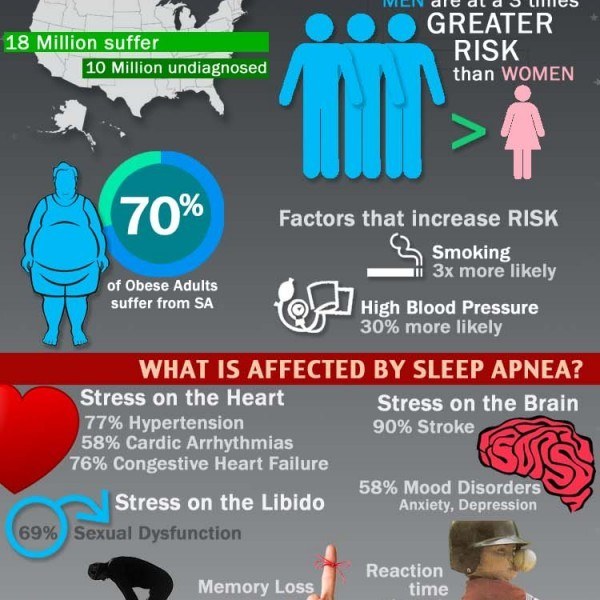
Sleep Apnea Is Linked To Heart Disease-Life Insurance Companies Hate Co-Morbidity Factors!
A new study found that obstructive sleep apnea is linked to an increased risk of heart failure and coronary heart disease in middle-aged and older men.
“Men with severe obstructive sleep apnea were 58 percent more likely to develop new congestive heart failure over eight years of follow up compared to men without sleep apnea,” says Daniel Gottlieb, study author and associate professor of sleep medicine at Harvard University’s School of Medicine. Researchers monitored 1,927 men and 2,495 women over 40 years of age.
All participants were free of coronary heart disease and heart failure at the start of the study. Study participants used polysomnograms as they slept to measure the presence and severity of sleep apnea as calibrated on the Apnea-Hypopnea Index (AHI). According to Dr. Gottlieb, “…there is a lot of undiagnosed sleep apnea, and that, at least in men; it is associated with the development of coronary heart disease and heart failure. Only about 10 percent of sleep apnea cases are ever(sic) diagnosed.”
Do You Know How Much Life Insurance You Need? Find Out Below!
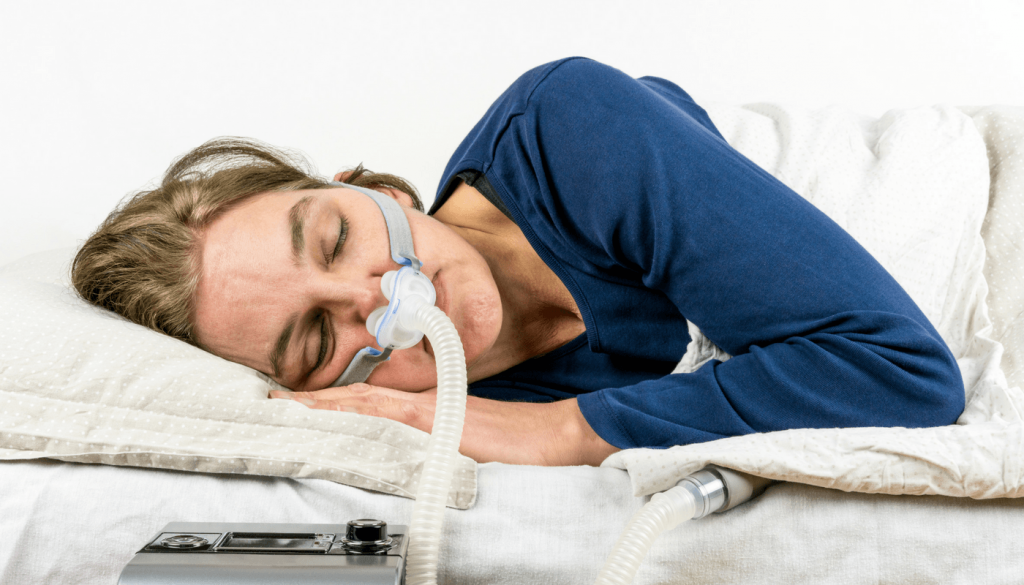
Sleep Apnea And Life Insurance Underwriting-Learn How It Works And What To Look For.
Pro Tip– Your Life Insurance Broker Should Know This Stuff. If Not, Find A New One!
People suffering from any type of sleep apnea can typically get some form of life insurance.
Because obstructive sleep apnea is the most common type of sleep apnea, it will be the main focus of life insurance underwriting.
With an individual policy, only people with obstructive sleep apnea, typically can get life insurance.
Unless you can document that your CSA condition was temporary, or caused by environmental factors.
For example, high altitude. Sleeping at an altitude higher than you’re accustomed to may increase your risk of sleep apnea.
High-altitude sleep apnea is no longer a problem when you return to a lower altitude.
This situation would most likely be favorably viewed by insurance companies who specialize in life insurance with sleep apnea.
The underwriting scenario for people with obstructive sleep apnea would be “standard” life insurance rates.
However, there are select companies that may consider better rates if everything else about you meets their requirements.
How To Get A Sleep Apnea Life Insurance Policy Issued With The Best Possible Rates
What is “being rated” for life insurance?
A “rating” is a surcharge based on an expectation of higher claim expenses due to any medical condition, family history-related medical conditions, or lifestyle activities.
Sleep apnea will affect the insurance rating and premium.
If you have a chronic condition, you are more likely to be rated than someone with a temporary health problem.
The severity of the health problem also plays a role in setting the rating.
When your sleep apnea is properly treated and is under control, it may not be a factor in determining your premium.
Insurance companies take sleep apnea very seriously when considering applications for life insurance.
In some cases, insurance companies will decline sleep apnea for life insurance coverage.
In the event that the policy is approved, expect the premiums will be higher compared to an otherwise healthy person.
In addition to higher premiums, some life insurance companies limit the amount of coverage they will provide to a person who has sleep apnea.
The life insurance company will want to know that you are seeking treatment if you have sleep apnea.
Life insurance companies like to see using CPAP on a regular basis, how consistent you are with the treatments, and the results of your sleep study.
Premium rates range from standard to preferred if the condition is severe and if you are complying with the treatment regimen.
When getting approved for term life insurance with sleep apnea, the first thing that the insurance company will want to know is are you wearing your CPAP on a regular basis.
They’re also going to want to see the results of wearing your CPAP, also known as a sleep study.
As with most high-risk life insurance conditions, people are expected to pay more for their life insurance premium if they suffered from sleep apnea.
The key is demonstrating that your sleep apnea is controlled and you’re taking all the necessary steps to treat it.
If you can demonstrate that and you have no other conditions, then, you can enjoy cheap term life insurance.
For people diagnosed with Obstructive Sleep Apnea (OSA), many medical insurance companies will provide payment for a medically-indicated sleep study and also cover for in-home sleep studies.
They may even cover the CPAP machine and other related accessories and supplies, provided that specific coverage criteria are met such as physician chart notes, diagnosis of OSA, qualifying sleep study, and prescription from your treating physician detailing what equipment and supplies are needed.
The Bottom Line Is That Insurance Carriers Want To See An AHI Of Less Than 5 With Or Without Use Of A Corrective Device, CPAP Treatment, Or Surgical Treatment In Order To Consider You For “Preferred” Rates On Your Policy.
If you can achieve this, and you have good vital signs and a decent health history, you could possibly qualified for “preferred” rates.
However, most folks who suffer from sleep apnea have multiple health conditions, and that’s what scares the insurance company underwriters.
In medical parlance, these are called “co-morbidity” factors, and the more of these factors you have, the more difficult it will be to get “preferred” or “standard” life insurance rates.
The choices for people who suffer from central and mixed apnea are limited, and they may need to get their life insurance with a group plan through their employer or consider some form of guaranteed issue policy.
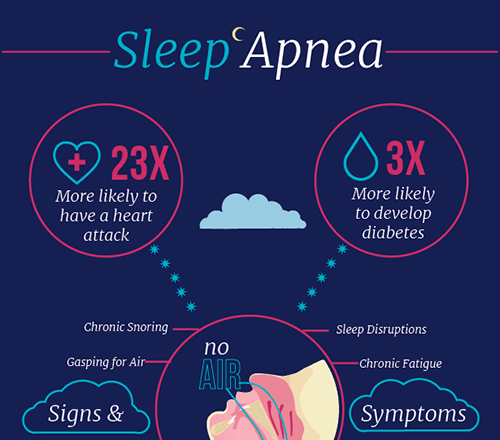
Infographic Courtesy of Granbury Dental Center Granbury, TX
Is Sleep Apnea Considered A Pre-Existing Condition For Sleep Apnea Life Insurance?
Several chronic respiratory disorders such as sleep apnea may be considered pre-existing conditions and may result in patients to be charged higher rates for insurance. Additionally, one insurance company in one state might accept a patient with sleep apnea while another would not.
According to Adam Amdur, the executive director of the American Sleep Apnea Association says:
“A diagnosis of sleep apnea can result in a ‘decline to cover’ by a life insurance company. If the insurance company does provide coverage, it will be [at] a much higher rate and [with] a limitation in the amount of coverage available.”
Get Instant Mobile Term life Insurance Quotes Here!
Complete this form and you’ll see instant term life insurance quotes.
Get Instant Mobile Term life Insurance Quotes Here!
Many insurance companies consider sleep apnea a high risk. Anything that increases risk for the insurer will ultimately result in the increase in the premiums that you pay. However, depending on the severity of your sleep apnea, you may be able to qualify for standard or even better rates.
Could I Be Denied Insurance Because Of My Sleep Apnea?
Sleep apnea alone would not be a reason for outright denial. However, if other known risk factors, such as obesity and high blood pressure are present, it could result in a less than favorable life insurance rating and much higher life insurance premiums. It may even result in either a decline in coverage.
Another factor that could affect life insurance consideration is the level of treatment you are undergoing to treat your sleep apnea. Expect an unfavorable decision if you cannot show that you are not undergoing treatment for your condition.
It is true that in general terms, certain companies are “friendlier” to people with certain risk factors than other companies. Some may be more competitive for people with OSA, others for people with a cancer history, and still others for people who climb mountains. But carrier selection is not that simple.
Things All Sleep Apnea Sufferers Need To Consider When Choosing A Life Insurance Company
Which Life Insurance Carrier Would Be Most Competitive For You Today?
Which Insurance Company Has An Underwriter With The Most Experience With People Who Have Sleep Apnea?
Which Life Insurance Company Is More Willing To Be More Aggressive Because They Have Sufficient Reserves?
Which Life Insurance Company Would Be Less Aggressive Because They Have Reserve And Credit Concerns?
Which Life Insurance Company Would Be Under Tighter Control By Their Reinsurer?
Which Life Insurance Company Would Be Given More Leniency By Their Reinsurer?
Which Life Insurance Carrier Would Be A Bit Hungrier For Your Business?
First, let’s take a look at a real life underwriting questionnaire we use to help the life insurance company determine whether or not they can even consider your application.
This sleep apnea questionnaire is a vital first step that helps us present your case to the underwriter who is not able to see you and speak with you and has no clear picture of you except the application paper.
So, it’s our job to “field underwrite” the case/applicant for the home office underwriter.
They truly rely on the broker who knows you to fill them in on the details of your sleep apnea and any other extenuating circumstances.
Here’s a copy of the sleep apnea questionnaire.
I’ve annotated the various sections based on my experience helping families get sleep apnea life insurance.
Let’s take a look:
(click on the photo and you can zoom into the notes)
Life Insurance Sleep Apnea Questionnaire
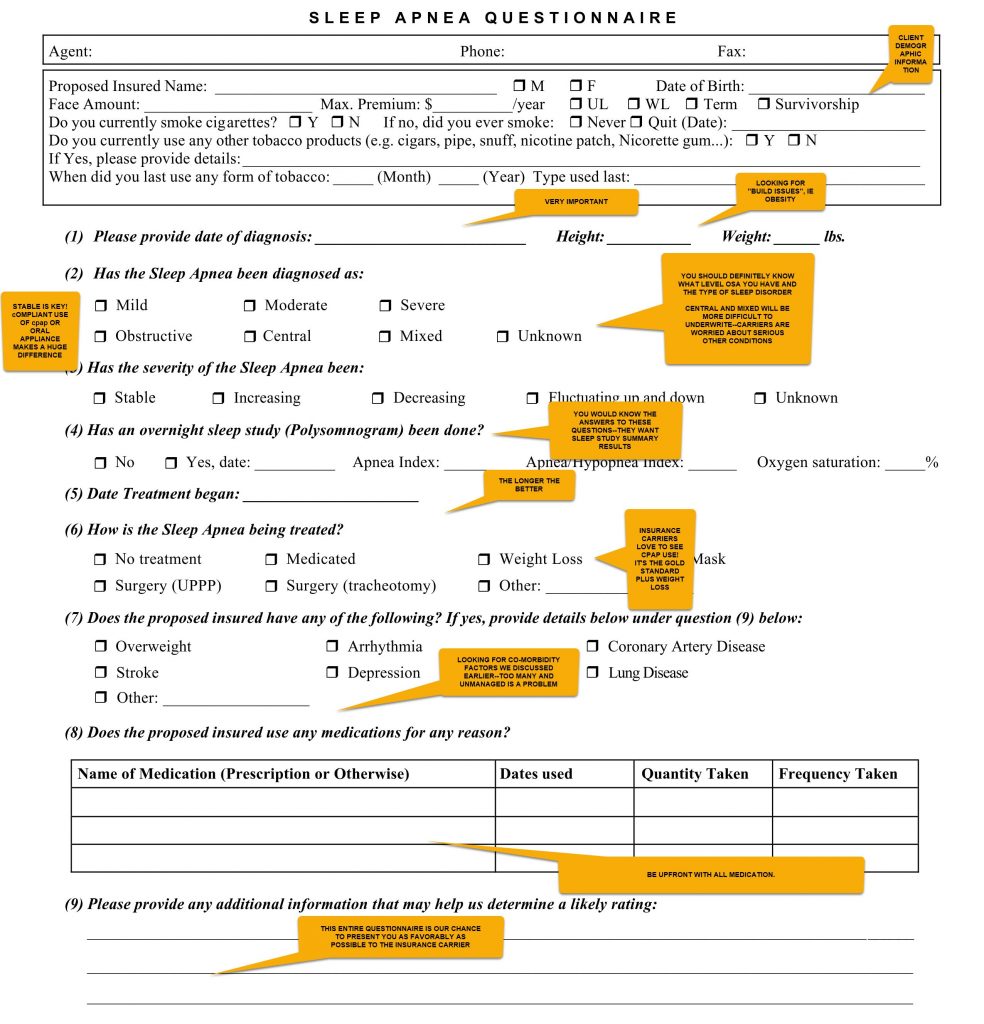
A real sleep apnea life insurance questionnaire
All these factors come into play when an underwriting department looks at a potential applicant.
This is why you must be pre-qualified for coverage so that they can all be addressed adequately.
Your broker needs to be able to test the waters for you and obtain a quote about which you can be confident you will be approved.
Don’t focus on the best rate class if you have Type-2 diabetes. sleep apnea, hypertension, and obesity all combined.
Preferred life insurance rates simply won’t happen.
After your broker does her homework by discussing your case with company underwriters, you can be sure it makes sense to submit a formal application.
You’ll be glad you took the extra time early in the process rather than getting your hopes up for an unreachable life insurance rate class.
What Are The Best Life Insurance Companies For People With Sleep Apnea?
Being diagnosed with sleep apnea can cause your life insurance rates to increase.
Before you buy life insurance, learn about who the best life insurance companies are so you’re not paying too much.
Some insurers are better than others at accommodating people with sleep apnea.
In our experince the life insurance carriers who do a great job at underwriting sleep apnea life insurance aren’t always the cheapest policies on a spreadsheet of term insurance quotes.
If you see a “low-ball” rate or a “teaser” on term insurance websites I would highly recommend that you dig deeper and ask the broker if those term life rates apply, even with a history of OSA/CSA or other major sleep disorder.
So, here’s our list of the life insurance companies with best outcomes on life insurance applications with sleep apnea, especially with co-morbidity factors. (Think diabetes, high blood pressure, insulin resistance, depression and high cholesterol)
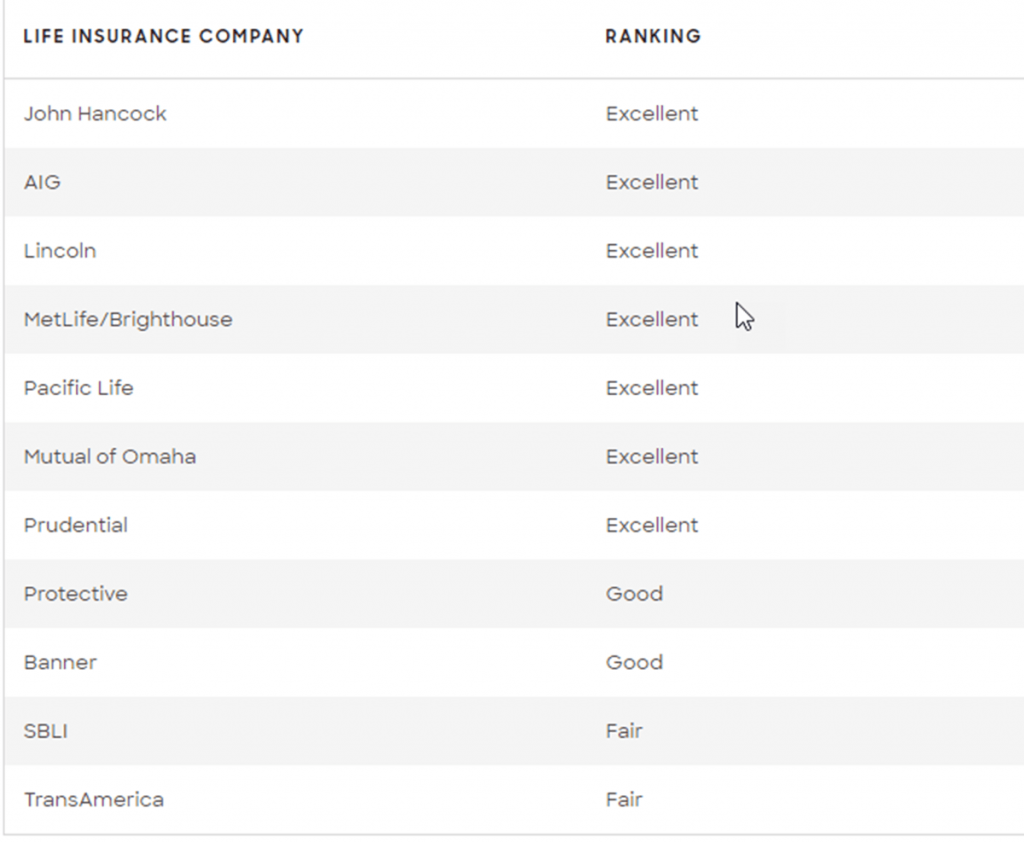
Make Sure To Use An Experienced Independent Life Insurance Broker Who Knows About Sleep Apnea And The Life Insurance Underwriting Process. You’ll Save Money And Time By Working With A Professional Who Knows The Life Insurance Market For Your Specific Health Condition!
What Research Is Being Done On Sleep Apnea Now?
According to Dr. Richard Schwab, a professor of sleep medicine at the Hospital of the University of Pennsylvania, TONGUE FAT is one of the current focuses of cutting edge sleep apnea research.
This ties completely into the correlation between obesity and sleep apnea.
Here’s a quote from a Huff Post article on sleep apnea:
“One of the things we are trying to better understand is the correlation between obesity and sleep apnea, so our recent research has studied the relationship between sleep apnea and tongue fat. Most people don’t think there is a lot of fat in the tongue. We eat all the time, we talk all the time, we are always breathing — we are using our tongue muscle all the time, so why would there be a lot of fat in at the tongue? It turns out that in those with sleep apnea, about 32 percent of the tongue is fat, while in obese people who do not have sleep apnea, the number is about 27 percent, which is a large difference. We are still trying to understand why there is fat in the tongue, but we know that tongue fat is going to be important in understanding the development of sleep apnea. We are also trying to understand if weight loss reduces tongue fat and if there are other ways to reduce tongue fat.”
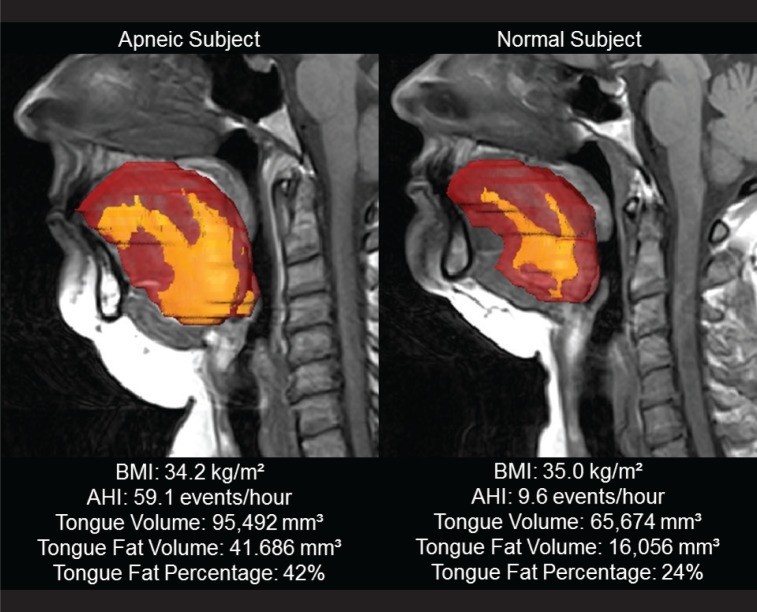
Are There Any Permanent Cures For Sleep Apnea?
There are a variety of ways to possibly cure your apnea including oral appliances, head bands, radiography, and surgical procedure. Most physicians agree that surgery is usually the best option for to permanently cure sleep apnea, however, there are many factors which go into the definition of being cured. However, the sleep specialist ALL AGREE that the #1 first step in treating sleep apnea is to LOSE WEIGHTif you are obese!
New Sleep Apnea Treatment Breakthroughs 2018
Neuromodulation Treatment For Sleep Apnea
Non-Surgical Treatment Recently Approved By FDA For Sleep Apnea
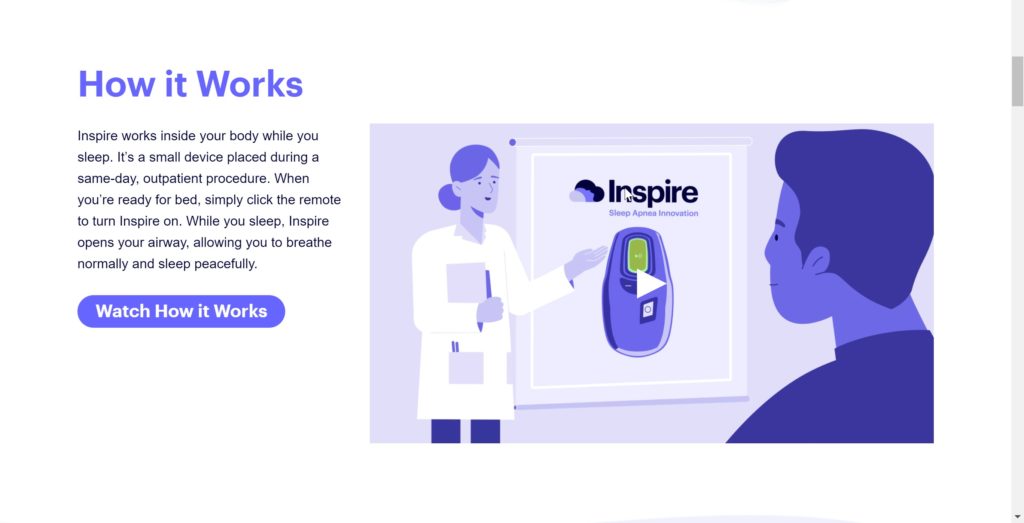
Photo Credit: Inspire
For patients who have tried and failed with the CPAP machine, there is a new alternative, that clears the obstruction by moving your tongue forward as you sleep.
The Inspire pulse generator is implanted in your chest like a pacemaker. This FDA-approved therapy has two leads.
The first lead is placed in the chest to sense when a patient inhales. The second lead is placed in the tongue and as a patient breathes, uses a mild stimulation to nudge the tongue forward. That movement of the tongue opens the airway and clears the obstruction that causes poor sleep.
The concept is so novel, the Cleveland Clinic named the technology one of the Top 10 Medical Innovations for 2018.
Typical life insurance carriers won’t have had much underwriting experience yet with this new implant approach.. Your life insurance broker will need to educate the underwriter by writing a strong cover letter, including some of the clinical literature from this treatment. In my opinion, this should not be an issue and will only enhance the underwriting process for applicants.
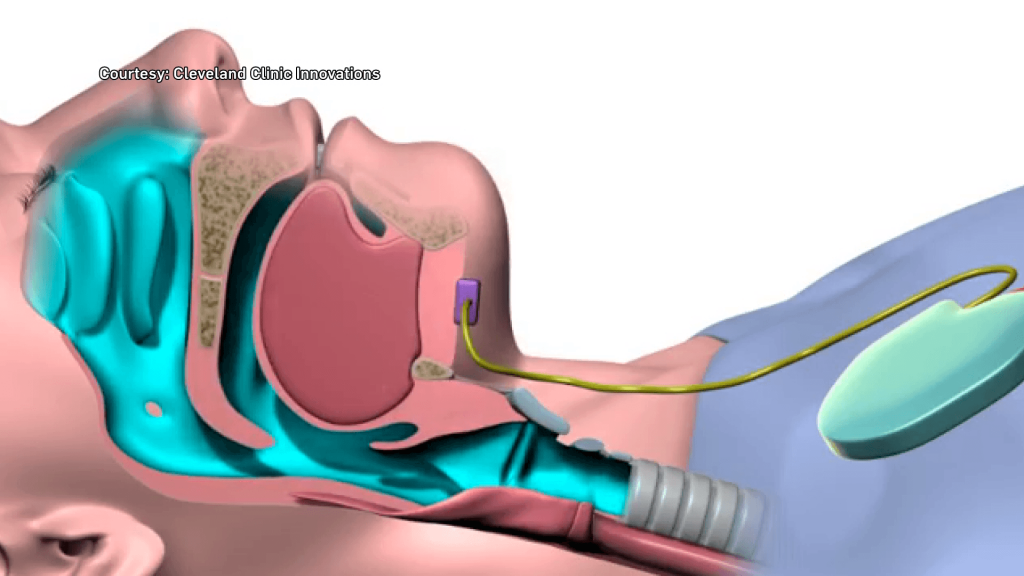
Surgical Procedures For Sleep Apnea
There are many different types of surgery for sleep apnea and snoring. But CPAP is the first treatment option for anyone who has sleep apnea. Oral appliance therapy also is an alternative treatment option for people with mild to moderate sleep apnea. The members of the sleep team will help you decide if surgery is right for you.
Surgery may be a multi-step process involving more than one procedure. You may need to continue using CPAP even when surgery successfully reduces the severity of sleep apnea. It is important to follow up regularly with your sleep physician after surgery.
Surgical options include(Courtesy AASM):
Uvulopalatopharyngoplasty (UPPP)
This procedure, and other types of soft palate surgery, targets the back of the roof of your mouth. It involves removing and repositioning excess tissue in the throat to make the airway wider. The surgeon can trim down your soft palate and uvula, remove your tonsils, and reposition some of the muscles of the soft palate. UPPP and other soft palate procedures are the most common type of surgery for sleep apnea. But UPPP alone is unlikely to cure moderate to severe sleep apnea. It may be combined with surgeries that target other sites in the upper airway.
Radiofrequency Volumetric Tissue Reduction (RFVTR)
Radiofrequency ablation is a treatment option for people with mild to moderate sleep apnea. It uses controlled cauterization to shrink and tighten the tissues in and around the throat. It can be applied to the soft palate, tonsils and tongue.
Septoplasty and Turbinate Reduction
These surgical options open your nasal passage to improve the flow of air. Septoplasty straightens a bent or deviated nasal septum. This is the divider that separates the two sides of the nose. Turbinate reduction reduces or removes the curved structures that stick out from the side of the nose. They can be enlarged for a number of reasons, including allergies. Medications also can help reduce the size of turbinates.
Genioglossus Advancement
During sleep the tongue can fall back to block the space for breathing in your throat. This surgery moves the major tongue attachment forward, opening up space for breathing behind the tongue. It involves making a cut in the lower jaw where the tongue attaches. This piece of bone (but not the entire jaw) is then moved forward.
Hyoid Suspension
This surgery enlarges the space for breathing in the lower part of the throat. The hyoid bone is a U-shaped bone in the neck. The tongue and other structures of the throat like the epiglottis are attached to it. Hyoid suspension involves pulling the hyoid bone forward and securing it in place.
Midline Glossectomy And Lingualplasty
These two surgeries involve removing part of the back of your tongue. Making the tongue smaller can prevent airway blockage in some people with sleep apnea. These procedures are uncommon.
Maxillomandibular Osteotomy (MMO) And Advancement (MMA)
This type of surgery is a treatment option for severe sleep apnea. It moves your upper and/or lower jaw forward to enlarge the space for breathing in the entire throat. The procedures involve cutting the bone of your jaws, which then heal over the course of months. Your jaws may be wired shut for a few days. Your diet also will be limited for several weeks after the procedure.
Palatal Implants
Palatal implants may be effective in some people with snoring or mild sleep apnea. Small, fiber rods are inserted into the soft palate to stiffen the tissue and prevent airway blockage.
Weight Loss Surgery
Bariatric surgery can promote weight loss and may improve sleep apnea in people who are obese. But weight loss surgery usually is recommended because of other health risks related to obesity. Prior to weight loss surgery you may be referred to a sleep physician for an evaluation and sleep study. There are many types of weight loss surgery. Some procedures reduce the size of the stomach, making it harder to eat as much food. Each surgery has different risks and benefits. People who are obese should work with their doctor to implement other weight loss strategies before considering surgery. You should use CPAP before and after weight loss surgery.
Laser-Assisted Uvuloplasty (LAUP)
This procedure is not routinely recommended as a treatment for sleep apnea. The surgeon makes cuts using a laser to scar and tighten the soft palate. The uvula is trimmed over a period of several visits. It is less painful and has fewer side effects than UPPP. But it is also less effective.
Tracheostomy
This surgery is an effective treatment for sleep apnea. But it is a drastic option that is used in rare, emergency situations. Other treatment options are preferable for almost all patients with sleep apnea. It involves placing a hollow breathing tube directly into your windpipe in the lower portion of the neck. This tube can be plugged during the day, allowing you to breathe and speak normally through your nose and mouth. At night the tube is opened to allow you to breathe without any blockage in your throat.
If you think you may have sleep apnea or need surgery, find a board certified sleep medicine physician at an AASM accredited sleep center near you.
Sleep Apnea Experts Weigh In On Cures And Efficacy Of Sleep Apnea Surgery
If You’re Applying For Life Insurance, Keep These Three Criteria In Mind For Your Sleep Apnea Condition
In the opinion of world renowned sleep doctor and oral surgeon, Dr. Kasey Li of Palo Alto, CA, you are “cured” when you have:
- Improvement in quality of life with reduction of sleep apnea symptoms
- Achieving RDI to less than 20 and reducing RDI by greater than 50%
- Improvement of oxygen nadir to 90% with few desaturations to below 90%
- AHI of less than 5
Dr Li is arguably the leading maxillofacial surgeon in the country having performed thousands of sleep apnea surgical procedures, most notably, Maxillomandibular Advancement surgery, or MMA surgery.
For a scholarly paper about MMA and MMO surgical procedures and their efficacy see Dr. Nelson Powell of the Stanford Head and Neck Surgery Department.
In the words of Steve Lamberg DDS, DABDSM, who advocates for non-invasive treatment of sleep apnea for his dental patients:
What is a “cure”? My answer is…That Depends. It depends on what is causing the high AHI or RDI or ODI. These are really just symptoms. We are in the age of personalized….or I prefer the term precision medicine. So let’s get real. Where is the point of the collapse of the airway that is causing the problem. If more than one area then lets learn how to evaluate this. Does the patient have NPO? Then we need to say: What is causing the NPO? We need to treat the cause. We need each other to move “airway” treatment (which includes sleep) to the next level.”
These sleep apnea surgery statistics are very much in favor of surgery if you are young and NOT obese. The best thing folks with apnea can do is to lose weight, stop smoking and consume less caffeine and alcohol to start.
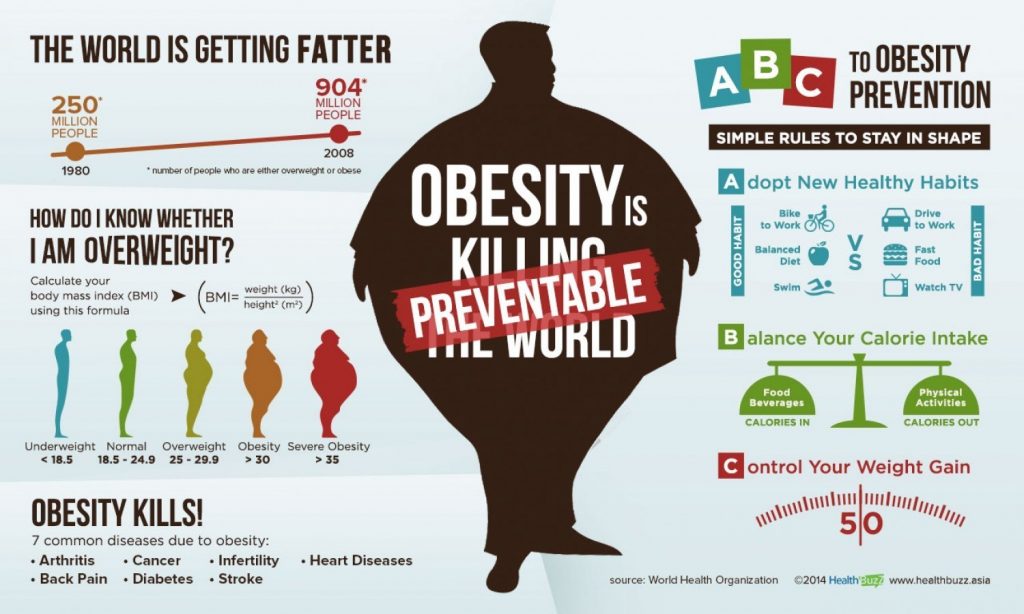
For Our Military Friends- VA Sleep Apnea Rules
(The Military Won’t Kick You Out, But They Won’t Let You In!)
First of all, it matters if you are still active in-service in your military branch. If you are, then good for you because you will be eligible to be treated for OSA and allowed to remain active in your MOS if you are not in harm’s way/deployed/hazardous duty, etc. If you’re active and diagnosed. We’ll be talking about mainly treatment of sleep disorders after you retire. Sleep apnea benefits are excellent if you are still active. Basically, the military is responsible for treating you like any other illness. The problem is when you leave service…
HOW DOES THE VA DIAGNOSE SLEEP APNEA?
Sometimes sleep apnea is diagnosed during a soldier’s active duty or sometimes it is a secondary issue to other war-service-related problem.
Either way, next to truckers, the veterans group is one of the highest groups of sleep apnea sufferers.
So diagnosis is vital.
Service-related obstructive sleep apnea sometimes comes after a moderate sleep apnea diagnosis after retiring from service.
This is difficult to prove, but it’s the VA’s responsibility to help the retired service-member diagnose, treatment, and file a disability claim on behalf of the member.
If your diagnosis is “service-connected, then you may be eligibility for disability compensation through the VA.
But don’t jump for joy yet! Proving a service-connected disability like sleep apnea is extremely difficult.
So… Here’s how the VA diagnoses sleep apnea according to specialty law firm, Chisholm Chisholm & Kilpatrick of Providence, RI:
“To begin, let’s first discuss what makes a sleep apnea diagnosis valid in the eyes of the VA. In order to confirm a sleep apnea diagnosis for compensation rating purposes, VA requires that a sleep study be conducted. If you have been previously diagnosed with sleep apnea, but have not undergone a sleep study, VA will not consider that sole diagnosis enough evidence to verify eligibility for compensation.
Those who are already service-connected for sleep apnea, but did not undergo a sleep study, will likely be required to have one conducted in order to confirm the diagnosis for benefit purposes. There is, however, an exception to this rule; those who have been service-connected for sleep apnea for at least 10 years do not need to undergo a sleep study to maintain their rating.
Note: VA has a duty to assist veterans in obtaining necessary evidence to prove their claim. This means that if no sleep study has been conducted to confirm your diagnosis, VA has a duty to assist you in scheduling an examination.”
The next step in the process for military sleep apnea sufferers who seek disability benefits is to get a sleep study and and have you condition “rated for disability”.
Sleep Apnea Secondary To PTSDIs Huge!
PTSD is by far the biggest secondary connector to sleep apnea for veterans, according to recent VA statistics.
PTSD affects, sleep, mental health, libido, diabetes, GERD, and cardiovascular health.
That’s why it’s vital to consult with a sleep doctor either while you’re in-service or recently separated from service.
All service-members are eligible for excellent benefits and very often some type of sleep apnea disability benefits.
Here Is The VA Rating For Sleep Apnea
(You’ll Need This Information To File A Claim For Military Sleep Apnea Benefits)
So here’s the deal…
You must prove that your sleep apnea is caused by your military service, not an easy task.
However, there are several recent military sleep apnea disability cases that have to wander their way through the courts successfully.
You can read about one of the successful appeals from 2018 that won the plaintiff serious sleep apnea disability benefits here.
You should also keep in mind the systems listed on the VA sleep apnea info-graphic below.
Keep the chart handy and refer to it if you have questions about symptoms.
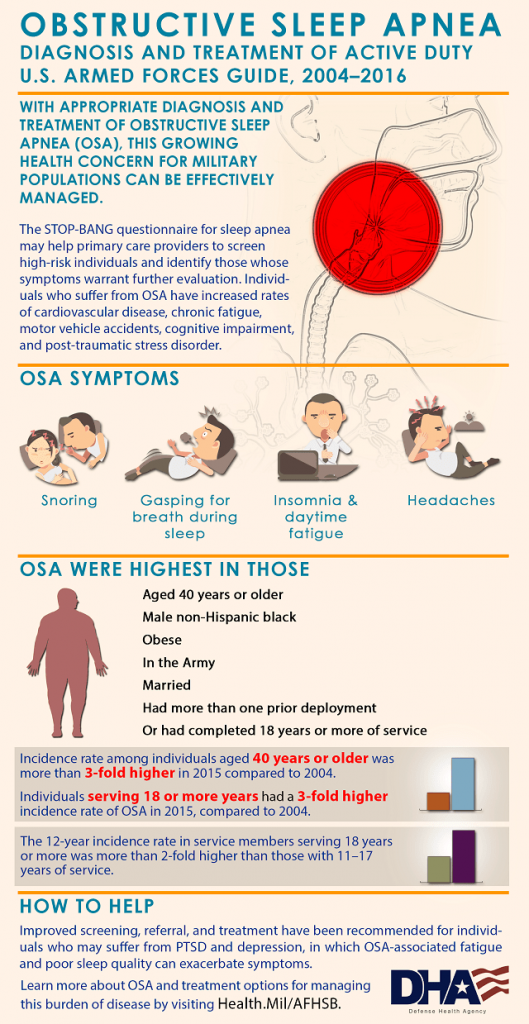

Bonus Section: What sleep apnea and About Car Insurance?
Is Life Insurance Directly Related To Car Insurance?
Not exactly, but if you get a ton of traffic tickets, BOTH car insurance and LIFE INSURANCE will end up costing you more.
And if the life insurance underwriters see lots of tickets coupled with sleep apnea, then they will probably decline to offer you a life insurance policy.
This is called “lifestyle underwriting” and it’s just as important as medical underwriting when it comes to life insurance risk assessment.
Think about this…according to research, people with sleep apnea are more likely to fail a driving simulator test and report nodding while driving.
Twenty-four percent of those with untreated sleep apnea failed the test.
It was found that people with sleep disorders had higher risk for unprovoked crashes and could not adhere clear driving instructions given at the start of the simulator test.
It’s tests like these on the ability of people with sleep apnea to drive safely that has affected your approval or premium calculations by car insurance companies.
Insurance companies define their level of risk insuring you based on your driving history.
If your driving history is riddled with traffic violations and accidents, it will have a negative impact on the cost of insurance.
And if any of those accidents were specifically related to your sleep apnea, then yes, your sleep apnea will affect your car insurance.
They may view you as high-risk. However, if you can prove that you have your sleep apnea under control, then insurers may quote you.
Remember, insurance carriers focus on you and if your sleep apnea has a direct impact on your ability as a driver, then you will be perceived as a risk.
Insurance companies calculate differently so it’s important that you get quotes from multiple insurers.
With these quotes, you can compare between different companies who offer the same level of coverage.
Car insurers price their premiums based on statistical and individual risk characteristics.
The riskier you are perceived to be as a driver, the more expensive your policy will likely be.
Your assessment will rely on your ability to justify that you have your sleep apnea under control and proof that no history reflects that your sleep apnea has had any adverse effects on your driving ability.
Regulations Related To Sleep Apnea?
There are no driving regulations stated in relation to sleep apnea… YET!
BUT… Driving With Untreated Sleep Apnea And Being Sleep Deprived Is Like Driving While Drunk!
A person with a medical condition or clinical diagnosis that may interfere with their ability to drive safely cannot be medically qualified to operate a commercial motor vehicle (CMV) in interstate commerce.
People With Sleep Apnea Should Only Drive If They Are Managing Their Condition And Being Treated By A Doctor.
Sleep Apnea And Life Insurance Comments
I Invite Any And All Comments Below.
I Would Especially Like To Hear About Your Experiences With Your Treatment And Whether You Or A Family Have Had A Problem Buying Life Insurance Due To Sleep Apnea. Thanks For Reading!
